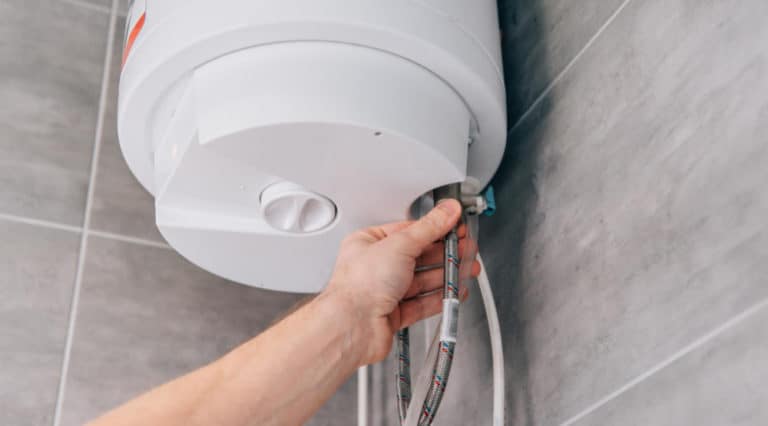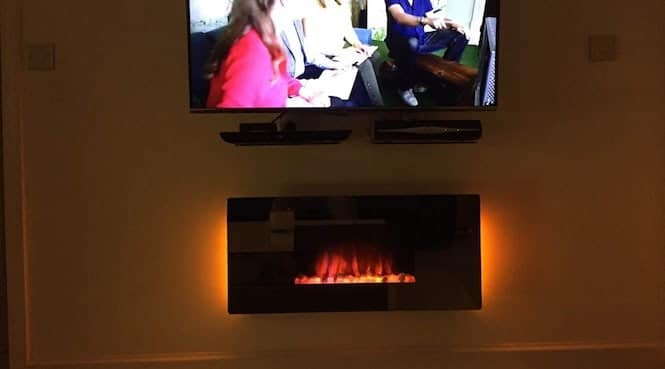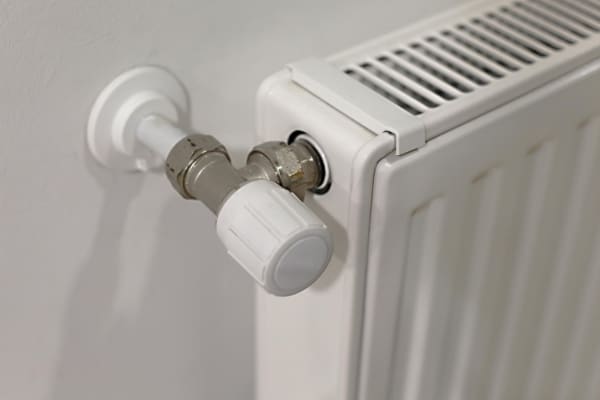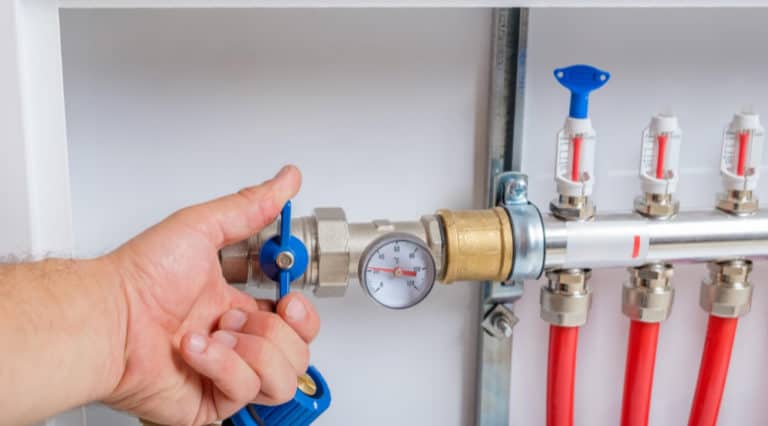Find My Local Expert How to Troubleshoot and Fix Electric...
Read More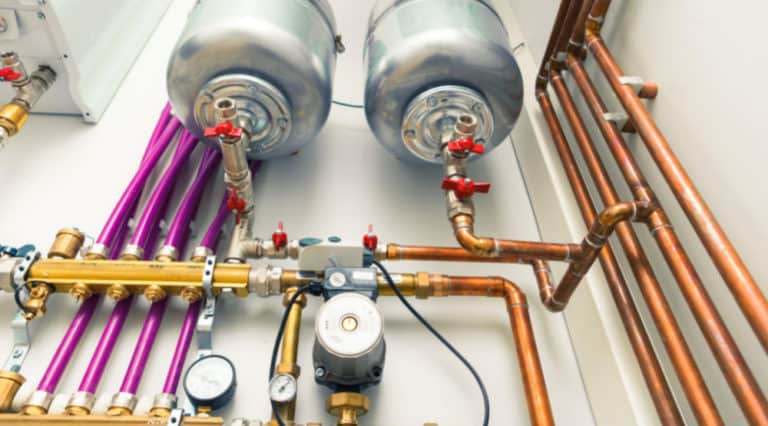
Baxi Boiler Problems: Diverter Valve
Combi boilers provide the ultimate combination of convenience and effectiveness for hot water and central heating. Allowing home and business owners to do away with large water tanks and expensive immersion heaters while still having almost instant hot water when needed, they are especially useful in small-to-medium-sized properties.
Unfortunately, as reliable as these marvels of convenience are, they are not immune from problems—especially when those boilers are over 10 years old—and it can be frustrating and even a little scary when they do break down, largely because they use gas, and gas can be very dangerous. That greatly limits the range of things an average home or business owner can do to get their combi boiler up and running again—especially since it is illegal to tamper with gas fittings, fixtures, and appliances in the UK if you are not qualified, even on your own property.
In this post, we’re going to take a look at the diverter valve specifically; what it is, what it does, how to spot a faulty one, and what you can do about it. But a diverter valve is far from the only problem you might encounter with your Baxi Boiler, so let’s take a brief look at some of the other problems first.
Baxi Boiler Problems
Here are some of the more common problems you might encounter with your Baxi Boiler. If you don’t see the boiler issue you are experiencing on this page, it’s best to just call a professional, since it will almost certainly be something that needs a qualified professional to take care of.
Low Water Pressure
A very common combi boiler problem is that of low water pressure in the central heating system. Note that this is separate from the water pressure coming into your property—a drop in that water pressure should not affect your central heating. However, the reverse is not true.
If the pressure in your central heating system gets too low, not only will your central heating stop working, but you will not be able to get hot water from your boiler, either. Now, it is not a big task to increase the pressure in your central heating system—though you will need to consult your boiler’s instruction manual for specific instructions—but the bigger problem lies in why the pressure had dropped in the first place. The most likely answer is a leak somewhere in the system.
The good news is that, in the vast majority of cases, the leak will be somewhere visible and you should be able to find it yourself. The bad news is that repairing that leak will almost certainly need a professional’s attention.
Frozen Condensate Pipe
The condensate pipe on your combi boiler is responsible for draining some of the acidic waste that is produced by the boiler as it runs. This waste appears in the form of vapour, but condensates into slightly acidic water as it cools, and is usually deposited outside of the property through a small pipe—the condensate pipe.

The water leaving this pipe comes through quite slowly, which can be a problem during the colder months as the water can freeze. As more water condenses and travels through the pipe, it also freezes, causing a build-up of ice. After enough time, this can block the pipe with ice, which prevents the boiler from operating.
Fortunately, this is often easy to fix yourself. All you need to do is warm the pipe up so that the ice melts. Indeed, it may even fix itself if the temperatures rise high enough during the day.
Faulty Thermostat
Most boilers these days will be installed with a thermostat, which is essentially a temperature sensor that can switch your heating on and off. This is an obvious improvement from just having a straight timer that turns it on and off at set times because it means your heating doesn’t come on unless your home is cool enough to need it.
Of course, if that thermostat goes faulty, it can cause issues with your heating. These issues may manifest in your heating coming on when it doesn’t need to, or not coming on at all! The problem can be something as simple as your thermostat being improperly placed (such as near a radiator or window), or it may be faulty and need replacing.
Radiators in Need of Bleeding
If you’ve noticed that your radiators don’t seem to be kicking out as much heat as normal, it could be that your radiators need bleeding. Now, this isn’t strictly speaking a boiler problem, but it is a very common problem with combi-boiler central heating systems. Also, if left unchecked, this problem will nearly always escalate into the low water pressure fault we mentioned above.
This issue is caused by air getting into the central heating system, lowering the pressure in there and reducing the capacity of the heating system to retain heat. As with the low-pressure fault, this can happen if there is a leak in the system.
The easiest way to diagnose this problem is by feeling the radiator when the heating is on (being careful not to burn yourself, of course). If your radiators are cooler at the top than it is at the bottom, that is a sign that they need bleeding.
The Diverter Valve
Now, to the main problem we’re here to discuss! The diverter valve is an integral part of your combi-boiler, so it makes sense that it should cause problems when it breaks down. Let’s look more closely at this part.
What is a Diverter Valve?
The diverter valve is a component of combi-boilers that opens and closes to change the part of the system that is getting heated. All of the water that is heated in your boiler—be it hot water for taps or your central heating—passes through this valve. The diverter valve has moving parts, so it is one of the parts of a combi-boiler more prone to failure over time.
What Does a Diverter Valve Do?
Due to the way combi-boilers are designed, only one water system can be heated at a time. In practical terms, this means that, at any given time, only your central heating or your hot water supply can be active. The role of the diverter valve is to switch between those two water systems as required.
Given that your central heating system will retain heat for a while after the boiler shuts off, the default behaviour of a diverter valve is to prioritise your hot water, because you will not notice your central heating turning off for a few minutes while you run the hot tap. This is where the aforementioned moving parts come in; the valve needs to be able to change the flow of water, and the parts needed to do that can go wrong over time.
How to Recognize a Faulty Valve
There are a few ways to spot a faulty diverter valve. Now, it should be said that some of these symptoms are not exclusive to the problem at hand, so just because the symptoms match one of these examples does not guarantee that it is the diverter valve that is at fault. If in doubt, always contact a professional.
#1 Hot Water But No Heating
This one is pretty straightforward; if you have hot water but no heating, your diverter valve is probably stuck and unable to switch the flow of water from hot water to heating.
#2 LukeWarm Water
This tends to happen when your diverter valve is stuck open slightly on the heating side, letting some heat get through to the hot water but not as much as it should be.
#3 Heating Needs to Be On to Get Hot Water
This is essentially the same as the lukewarm water problem, only the valve is stuck a little more open. This is why your heating needs to be on to get the full force of the heat into your hot water.
How to Fix It!
The good news is that the diverter valve is a relatively inexpensive part—especially when compared to the cost of a new boiler. Unfortunately, you’re going to need to hire a professional to take care of the replacement, as you really shouldn’t be tinkering with a gas boiler if you don’t know what you’re doing. Your existing valve may be repairable, but it is usually more cost-effective to just replace it.

Hire a Qualified Plumber
A natural life span for a combi-boiler that has been well looked after is around 8-10 years, and you will often find that the warranties on your boiler are around this period. It is usually after this period that your boiler will start developing issues, including the aforementioned diverter valve issues.
Of course, a new boiler is still expensive, so it’s understandable to want to repair your boiler rather than replace it. Whichever route you decide to take when your older boiler starts to break down, make sure you call a qualified plumber to take care of it. Gas appliances are not for the inexperienced.
You May Also Like...
Free Storage Heaters for UK Pensioners
Find My Local Expert Free Storage Heaters for UK Pensioners...
Read MoreElectric Wall Heater Installation
Find My Local Expert Electric Wall Heater Installation Considerations Many...
Read MoreEasy Ways to Bleed and Maintain your Boiler
Find My Local Expert Easy Ways to Bleed and Maintain...
Read MoreBoiler Losing Pressure: Here’s how to fix it!
Find My Local Expert Boiler Losing Pressure? Here’s How to...
Read MoreNeed Your Boiler Replaced?
My Trusted Expert Guarantee
Experts Have Been Vetted & Approved
